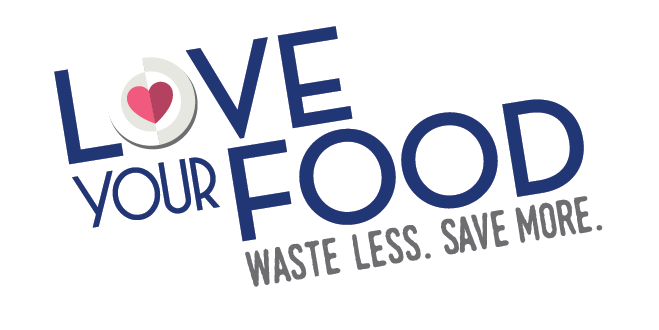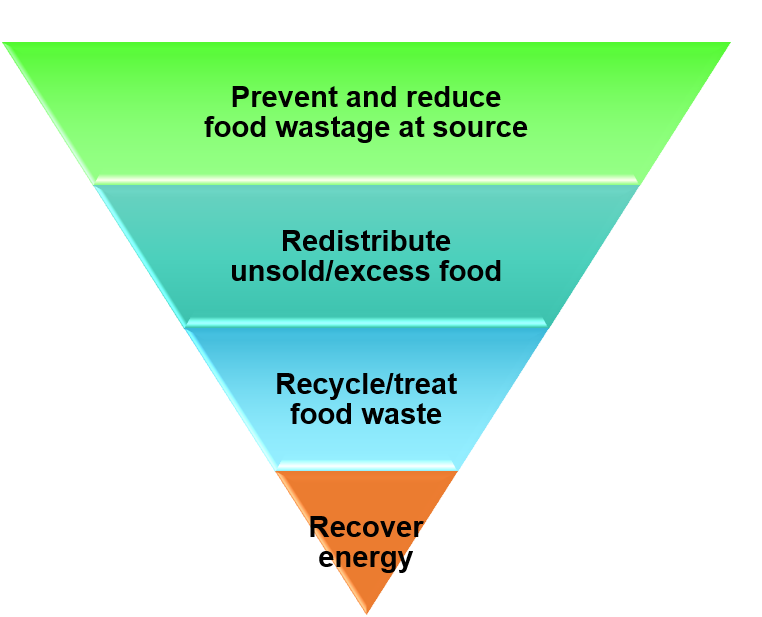
Food waste accounted for about 11 per cent of the total waste generated in Singapore in 2022.
The total amount of food waste generated in 2022 was 813,000 tonnes, a dip from 2021 figures. The recycling rate for food waste was 18 per cent.
The table below shows the statistics in the past 5 years:
| Year |
Food Waste Disposed of
('000 tonnes) |
Food Waste Recycled
('000 tonnes) |
Total Food Waste Generated
('000 tonnes) |
Recycling Rate (%) |
| 2022 |
667 |
146 |
813 |
18% |
| 2021 |
663 |
154 |
817 |
19% |
| 2020 | 539 | 126 | 665 | 19% |
| 2019 | 607 | 136 | 744 | 18% |
| 2018 | 637 | 126 | 763 | 17% |
Food waste that is improperly managed may give rise to odour nuisance issues and even vermin proliferation. Food waste may also contaminate other recyclables in the blue recycling bins and end up compromising the recycling outcomes (dirty recyclables are usually of little value to recycle). Therefore, there is a need to manage food waste holistically. Reducing food wastage, redistributing unsold or excess food, and valorising/treating food waste are important components of our national waste management strategies to work towards Singapore becoming a Zero Waste Nation. The diagram below shows Singapore’s food waste management hierarchy that prioritises the prevention of food waste from being generated.
Food waste management hierarchy
Resource Sustainability Act (RSA)
The Resource Sustainability Act (RSA) was enacted in 2019 to give legislative effect to new measures to address the priority waste streams (including food waste). The RSA is available here and here.
Under the RSA, affected buildings will be required to segregate their food waste for treatment and reporting. These are industrial and commercial buildings that generate large amounts of food waste. The types of buildings and their thresholds are stated in Table 1.
Table 1: Buildings covered under the food waste segregation and reporting framework
| Types of Buildings | Threshold |
Commercial
| Shopping Malls | F&B Area* | > 3,000 sqm |
| Hotels | F&B and Function Area | > 3,000 sqm |
| Industrial | Single-user Factory
(SUFs) | Large Food Manufacturers^ | Operation area > 750 sqm |
| Multi-user Factory (MUFs) | GFA and food tenants | GFA > 20,000 sqm and with > 20 food tenants |
| At least one large food manufacturer^ | Operation area > 750 sqm
|
Note:
*Gross floor area set aside for supermarkets located in shopping malls will count towards the computation of F&B area of said shopping malls.
^Premises which are solely used for specific trade activities such as the manufacturing of spices, dried foodstuffs, additives, bottled water and high-pressure processing can be excluded from the requirement as they generate low volumes of food waste. An exemption request along with the supporting documents shall be submitted to NEA for assessment.
The RSA requirements are summarised below:
| Stakeholder | Requirements |
| Occupier (e.g., tenants) | Segregate and dispose of food waste at the facility provided by the owner/building manager.
(If managing their own food waste) Obtain approval from NEA to do so and share data with owner/building manager for reporting. |
| Owners/ building managers | Provide a designated facility within the building to allow tenants to dispose of food waste separately from other waste.
Owners/building managers of new buildings must treat all segregated food waste on-site unless prior written permission has been obtained from NEA to treat the segregated food waste outside the premises.
Owners/building managers of existing buildings must either treat the food waste on-site, or engage a licensed waste collector to send the food waste for treatment at an off-site facility.
Report amount of segregated food waste that is treated annually. |
Since 1 January 2021, developers of new buildings must allocate space for on-site food waste treatment systems in their design plans.
The implementation of the food waste segregation and reporting requirements will be staggered and the requirements for new buildings will commence on 1 January 2024.
Please visit the sub-pages below for further information on our strategic approaches: